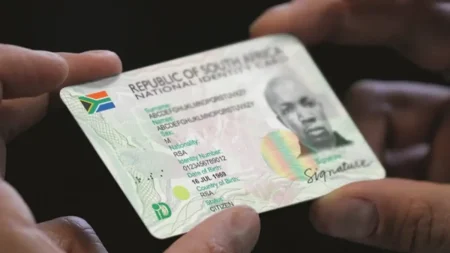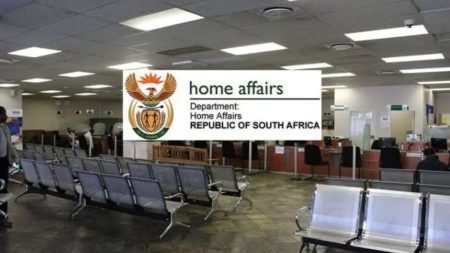KwaZulu-Natal (KZN), one of South Africa’s most populous provinces, has long faced challenges related to poverty, food insecurity, and socio-economic disparities. The situation was further exacerbated by natural disasters such as flooding and the COVID-19 pandemic. However, a combination of government-led initiatives, non-governmental organizations (NGOs), and faith-based groups have stepped up to provide essential food relief to those in need.
This article explores the key food parcel distribution efforts in KwaZulu-Natal, highlighting the collaborative efforts of local, national, and international entities.
Government-Backed Food Relief Initiatives
1. Department of Social Development (DSD)
The South African government, through the Department of Social Development (DSD), has been actively involved in food parcel distribution across KwaZulu-Natal. The DSD played a crucial role during the COVID-19 pandemic, when thousands of vulnerable citizens in KZN were left struggling to meet their basic needs. The department distributed over 32,276 food parcels across the province, reaching approximately 129,104 individuals.
These food parcels were part of a broader national relief effort aimed at alleviating hunger during the pandemic. The DSD’s efforts extended beyond the urban centers, ensuring that rural and marginalized communities also received much-needed food support.
Additionally, the DSD has continued to distribute food parcels as part of its regular support services, particularly to individuals who are part of social welfare programs like child support grants, old age pensions, and disability grants.
For more information, you can visit the official Department of Social Development website.
2. United Nations Development Programme (UNDP)
In the wake of the devastating floods that hit KZN in 2022, the United Nations Development Programme (UNDP) partnered with the South African government to provide emergency food relief. Alongside local municipalities, the UNDP facilitated food parcel distributions to communities in distress, with distribution points set up at public centers such as city halls in Ntuzuma and Umlazi.
This initiative was part of a broader humanitarian response, which also included shelter and infrastructure support for displaced individuals. The UNDP continues to work with local partners to deliver essential aid and foster long-term recovery efforts in the province.
You can read more about the UNDP’s efforts on their official website.
Non-Governmental Organizations Leading the Charge
1. Food for Life South Africa
A key player in the food parcel distribution network in KZN is Food for Life South Africa, an NGO that operates across multiple branches in Durban, Pietermaritzburg, and Port Shepstone. Food for Life South Africa runs several projects to provide free food to impoverished communities. Their programs reach families in need, focusing particularly on underprivileged areas with a high concentration of unemployed individuals, the elderly, and children.
As a faith-based organisation, Food for Life South Africa works closely with local religious institutions to distribute food parcels and support various outreach programs. The organisation also collaborates with schools, orphanages, and community centers to provide nutritious meals to vulnerable groups.
Learn more about their work by visiting Food for Life South Africa’s website.
2. Islamic Relief South Africa
Another important NGO that has made a significant impact in KZN is Islamic Relief South Africa, especially during religious periods like Ramadan. Through their food pack initiative, Islamic Relief partners with community leaders to ensure that food parcels are distributed to eligible households in areas such as Durban and surrounding towns. Their Ramadan food packs provide much-needed supplies to families, helping them to meet their needs during the holy month.
In addition to its Ramadan distributions, Islamic Relief is also involved in year-round food security programs aimed at alleviating chronic hunger and supporting sustainable development in impoverished communities.
More information can be found on Islamic Relief South Africa’s website.
3. Gift of the Givers
As one of South Africa’s largest disaster relief NGOs, Gift of the Givers has been instrumental in providing food and other forms of aid to KZN communities, particularly after the devastating floods in 2022. The organisation provided extensive support in areas like Bergville, KZN, distributing food parcels to families and individuals severely affected by the flooding.
Gift of the Givers continues to be a crucial player in disaster relief efforts, not only in KZN but across South Africa. The organisation’s swift and efficient response has earned it the respect and trust of many South Africans.
To learn more about their efforts, visit Gift of the Givers’ website.
Community-Based and Faith-Based Distribution Networks
1. KZN Food Aid Fund
The KZN Food Aid Fund operates out of community-based centers in Ballito, Durban, and surrounding areas, providing food parcels to over 30 families. This initiative focuses on local, grassroots support, where community members and local businesses collaborate to gather donations and distribute them to families in need.
In addition to food, the KZN Food Aid Fund helps to provide essential household items and clothing to those in need, particularly the elderly and people with disabilities. Their work showcases the power of community-driven efforts to tackle food insecurity on a local level.
For more information, visit KZN Food Aid Fund’s Facebook page.
2. Each 1 Feed 1 (Nelson Mandela Foundation)
The Each 1 Feed 1 initiative, supported by the Nelson Mandela Foundation, has played a key role in providing food relief to KZN’s most vulnerable communities. In partnership with local organisations and schools, the campaign distributed over 10,600 food parcels to learners and their families, helping to alleviate hunger and improve the overall well-being of young students.
The foundation’s approach not only focuses on immediate food relief but also aims to address the underlying causes of food insecurity, with a focus on sustainable development and education.
For details on this initiative, visit the Nelson Mandela Foundation’s website.
The Road to Long-Term Solutions
While food parcel distribution in KwaZulu-Natal has undoubtedly provided short-term relief to thousands of families, it is crucial to remember that sustainable solutions to food insecurity must be prioritized. Government agencies, NGOs, and community organizations continue to play an essential role in addressing hunger, but long-term strategies that include economic development, education, and social support are key to breaking the cycle of poverty.
As KwaZulu-Natal continues to recover from recent challenges, the collaborative efforts of all sectors will remain vital in ensuring that no one is left behind. For those in need, food parcel distribution remains a crucial lifeline – one that offers hope and sustenance in times of crisis.
Related: Food Parcel Distribution Points in Gauteng










